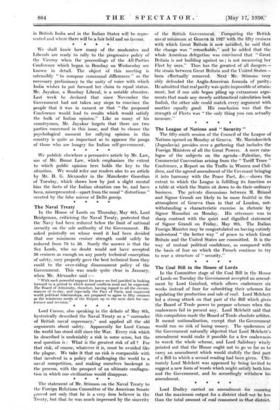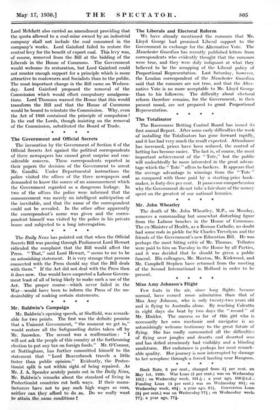Lord Dudley • carried an amendment • •for ensuring that
the maximum output for a district .shall•Aot-be less than the total amount of coal-consumed in'thaVtliStrici. Lord Melchett also carried an amendment providing that the quota allowed to a coal-mine owned by. an industrial company shall not include the coal consumed in the company's works.. Lord Gainford failed to restore the central levy, for the benefit of export coal. This levy was, of . course, removed from the. Bill at the bidding of the Liberals in the House of Commons. The .Government would welcome its restoration, but Lord Gainford could not muster enough support for a principle which is more attractive to coalowners and Socialists than to the public. The most important change in the. Bill came on Wednes- day. Lord Gainford proposed the removal of the Commission which would effect compulsory amalgama- tions. Lord Thomson warned the House that this would transform the Bill and that the House of Commons would be bound to reinstate the Commission. Why, even the Act of 1926 contained the principle of compulsion ! In the end the Lords, though insisting on the removal of the Commission, substituted the Board of Trade.
• * *















































 Previous page
Previous page